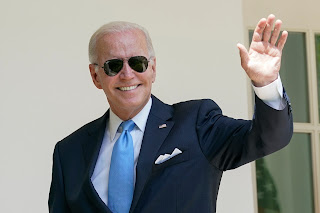Sarah Chayes -- formerly of NPR, Afghanistan NGOs, and civilian advisor to U.S. military proconsuls -- has used the occasion of Senator Diane Feinstein's death to reflect on our failure to offer a right role to our elders.
Too often, old people of great accomplishment like Ruth Bader Ginsberg and Diane Feinstein cannot envision how they might exist in their last years in a society they've helped to shape. So they just stumble on through infirmity long beyond their time, ensuring they cannot come to a dignified exit. This is not their fault; we do not offer a socially recognized alternative.
... we have deprived ourselves of a crucial social role. We have deprived ourselves of the human capacity to hold our sacred collective knowledge and bring it forth when needed. And we have deprived our elders of the opportunity to fill that role, and to be honored for the unique gifts they have to offer, instead of sniggered at for their physical frailties and their stubborn self-delusion.Riffing on a fable by the Roman philosopher Seneca the Younger, Chayes concludes:
In pre-modern cultures, and in some places down to the more recent past, there was a recognized stage of life that we have abolished: elderhood. ... It is the role of councillor, the person situated a bit off to the edge of the ruckus of the society, who is sought out for the different or deeper insight they can offer.
... among elders, the investment of ego in the details of the outcome is releasing. The wisdom is on offer, no constraints. No gnashing of teeth in frustration at being unable to make this or that thing happen.
Meanwhile, the full-fledged adults who should be rising to leadership roles [we leave] dancing attendance. Or, disgusted, they turn away from public affair
This is no way to run a society.
And this, to me, is the real problem with our gerontocracy.Old people, people over 65, are now 1 in 6 or 17 percent of Americans. There are some 55 million of us.
By 2060, there will be 95 million elders. (No, I don't expect to be around to see this.)
The society would be wise to try to figure out how to both 1) use what we learned in a manner and in roles that we can appreciate; and 2) get us gracefully out of the way so generational transition can take place.
Speaker Emerita Congresswoman Nancy Pelosi has set an extremely rare and extremely wise example by smoothly passing on leadership.








.jpeg)











.jpeg)










